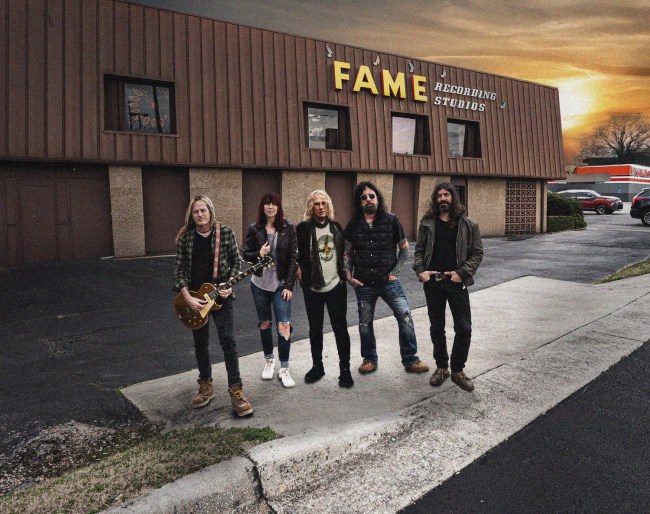
via John Corabi / Press Photo
Success in popular music is often defined by a simple word: Perseverance. Those who successfully explode onto the scene are few and far between, and oftentimes, even the fast-risers are gone in the blink of an eye (hello, Lorde!).
Surviving lont-term and making a reasonable living in music is an endurance game. Pay your dues, spend years on the road playing shows in front of small crowds in remote locales over and again, gradually building a name and a sound, and hopefully, finding an audience at some juncture—that’s the gig.
Our past guest, Ray Wylie Hubbard, who has become more broadly known in his later years, comes to mind. Chris Stapleton was a Nashville songwriter for more than a decade before releasing his debut solo album at 37; Willie Nelson was 40 when Shotgun Willie came out and Sia was a backup singer for many years before releasing albums under her own name.
The point being: Musicians are the ultimate lifers. They have to be. And perhaps no one exemplifies that quite like John Corabi, our most recent guest on The Load Out music podcast.
Corabi has fronted or played in bands including The Scream, Union, Mötley Crüe (during the time Vince Neil was dispatched), hair-metal band Ratt, and, of course, one of his most enduring projects—the critically acclaimed supergroup The Dead Daisies.
In addition to Corabi, the band includes guitarist Doug Aldrich (Whitesnake, Dio), Michael Devin on bass (Whitesnake), drummer Sarah Tomek (Steven Tyler) and Australian rhythm guitarist David Lowy.
But looking back on Corabi’s legacy is a fun exercise. In 2022, he released his autobiography, “Horseshoes & Hand Grenades,” in which he laid it all on the line, including the lessons from his breakup with Mötley Crüe.
“Whether I left or I got fired—whatever the deal was with Mötley,” Corabi said. “I saw how people treated me when I had the gig. All I had to do was put a cigarette in my mouth and like three people, our crew guys, were there with a lighter. So, I was really kind of pampered. Guitars were just given to me; sneaker companies; and then all of the sudden when it was announced that Vince was coming back. It was like I was a lepper.”
In the mid-1980s, Corabi left his hometown of Philadelphia for Los Angeles. It was the height of the hair-metal days. The Hollywood Strip was humming and promoters were forcing bands to sell advance tickets, turn over cash before shows, and even asked to announce after-parties on-stage at the bands’ homes.
“I did it once and I probably had 150 people,” Corabi said about hosting after-parties. “Bought a bunch of beer and there was literally people walking out of my house with like coffee mugs, silverware…one chick was in my bathroom going through my wife’s feminine products and putting them in her purse. But it was pretty wild. Everybody was about palm tree hair, as minimal clothing as possible and parties.”
Then there was his five years helming Mötley.
“Yeah, everyone was like, ‘when they were working with Corabi, they were all squeaky clean,’” he laughed, with a hint of frustration. “Like, no, not necessarily. I was with the band five years…It was fun dude.”
But that was then. He’s a bit over talking about those days despite clearly relishing his time hanging with Mick Mars, Tommy Lee and Nikki Sixx.

via Dead Daisies Press Pic
“My biggest regret,” Corabi notes. “When you’re in the circle, you’re in. They love you to death. But when you are out of the circle, you’re not even a passing thought. That’s the part that sucks.”
Corabi said he still loves all of those guys, including Vince Neil, who he replaced and then replaced him.
Flash forward to today. Corabi is at the helm of The Dead Daises.
Earlier this summer, the band dropped the terrific new album Lookin’ for Trouble. It’s a tremendous, raucous collection of blues and blues-rock standards including versions of “Black Betty,” “Little Red Rooster,” “The Thrill is Gone,” “Sweet Home Chicago” and more.
The project started organically during late-night jam sessions after wrapping the band’s rock album Light ‘Em Up, and was recorded live at the legendary FAME Studios in Muscle Shoals, Alabama, a space with deep roots in blues and soul history.
“We wound up just kind of breaking a song down, arranging it, and once we had an arrangement… lay it down,” he recalled. “It’s mostly live, off the floor. Kind of inebriated. Haha. A bunch of old guys just doing a bunch of blues tunes.”
Old guys blowing the lid off some blues standards, more like it.
Have a seat. Listen up. Enjoy tales from a road warrior. It’s a great conversation with the ultimate music lifer, John Corabi, on the latest episode of The Load Out Music Podcast.